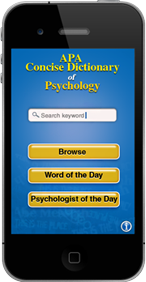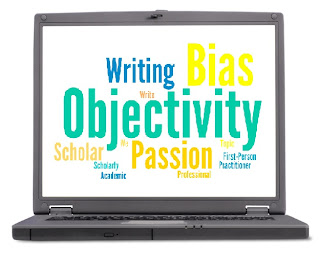Editor Jen Johnson "has a particular interest in helping students craft well-written doctoral research, from the sentence level up." Check out her previous posts, on everything from social change writing to the assumptions in a study.
We Need You!
Do you want to win $5 in Amazon credit for a few minutes of your time?
We need your feedback on WriteCast, our podcast pilot. Visit our episode archive if you haven’t yet listened to the podcast or want to listen to an episode again. After listening to one or more episodes, take our brief, anonymous survey to let us know if you found the podcast useful and if it should continue. If you have suggestions or ideas for episode topics, we’d love to hear those, too. In appreciation, the first 100 survey respondents can win a $5 Amazon e-gift card!
The survey is open until August 16 (but if you take it soon, you’re pretty likely to win!).
We’re excited about WriteCast, and we have a lot of ideas on how to expand the podcast and offer you writing support that’s fun, engaging, and unique. We also want to provide writing resources that meet different learning styles and that you can access wherever you are. But we need your input to help us determine if the podcast is helpful to Walden students (and if you're not a Walden student, we also welcome your feedback). So, here’s your chance to voice your opinions about this new writing service. Take our survey here.
Thanks for listening and participating!
Student Spotlight: Mary Eldredge-Sandbo
 |
| Mary and her husband live in North Dakota with their two dogs. |
This
week marks the first post in our student spotlight series. In this series, we
will discuss the highlights and challenges of academic writing from the
perspectives of several Walden students. View the corresponding faculty spotlight post as well!
For
our first student spotlight, we interviewed an EdD candidate in the Teacher
Leadership program. Mary Eldredge-Sandbo has been teaching high school
life science courses for 30 years and is in the thick of her academic writing
career. We asked Mary for a few reflections on her experiences as a writer at
Walden.
What is your writing process?
During
the school year, I write late at night and on the weekend after I have finished
my lesson plans and correcting for the day. It is not that I consider my course
work for Walden less important than everything else, but until I have taken
care of my teaching responsibilities, it is difficult to concentrate on
anything else. During the summer, I write off and on all day, with breaks for
gardening, housecleaning, closet sorting, and other wonderful diversions. I recently set up a writing table on our
patio in the backyard. I love working
outside, but most of the time, I sit at my desk with a window view. The two
dogs usually keep me company.
I
think I could work on revisions forever, so I am grateful for due dates and
deadlines. I usually write my first
draft, then I cut several sentences from each paragraph, then I cut words from
each sentence. I put each paragraph
through Grammarly,
located on the Writing Center’s webpage, to catch most of my grammatical
errors, and then I get feedback from the Writing Center or a friend and I
re-work each paragraph again. Finally, I
double-check my reference list. I save
nearly every rewrite with dates so that I can go back and retrieve a sentence
if needed. Now that I am working on my
proposal and do not have set due dates, I use my Writing Center appointments as
deadlines for writing specific parts of the proposal.
Do you have a favorite strategy or resource that you use to help strengthen your writing?
Reading
my work aloud is helpful because it helps me focus and find silly errors and
inconsistencies. Feedback and support
from the tutors at the Writing Center have also been very helpful to me. They do not correct the errors, but they
provide resources and explanations that have helped me to improve my
writing. I made my first appointment
because I was not sure I was doing my APA citations properly. The writing tutor helped me understand using
APA, but more importantly, she asked questions and pointed out ways to help me
make my writing more concise and clear.
Now I find myself asking some of those questions, such as, “Why is this
significant?” and “Can you find research to support this statement?”
What aspect of writing do you find the most challenging?
I
struggle with being
concise in my writing. I constantly need to go back and get rid of the
“fluff.” I find this to be excruciating, but the process forces me to focus on
the topic. I always learn so much with each revision.
What writers inspire you?
I
usually get teary-eyed when I read John Dewey,
and text messages from my nieces and nephews always warm my heart. More than anything, however, I am inspired
when I read my students’ writings as they work to build their understanding of
the many components and interactions of the living world. My students’ varied perspectives fill me with
hope for the future as well as gratitude that I have the privilege and
responsibility of being their teacher.
What is your advice for fellow student writers looking to improve their work?
I
have found great help in asking others to read my writing. It was not until I asked for feedback that I
realized I needed to be more concise; everything I wrote seemed important when
I was the only one who read it! I
realized the value of getting feedback from an objective reader after my first
appointment with a tutor at the Writing Center.
Because I have found that so helpful, I have also asked a family member,
who is not in the education field, to read my writing to help me understand how
I can make it clearer. Receiving honest
feedback can be a bit painful at times, but it is always helpful! Even when I decide not to make a change to my
writing, the feedback forces me to consider my message carefully.
The Best Writing Teacher I’ve Ever Had
When I think about my former college writing professor,
Sister Mara, one day in particular comes to mind.
I had made an appointment to visit her office—a room with a desk, sofa chair, and hundreds of books. It was the middle of fall semester, when her students’ final essay projects were just getting under way. A bit behind on my own essay, I once again felt the need to bounce ideas off of the most famous English professor on campus.
I had made an appointment to visit her office—a room with a desk, sofa chair, and hundreds of books. It was the middle of fall semester, when her students’ final essay projects were just getting under way. A bit behind on my own essay, I once again felt the need to bounce ideas off of the most famous English professor on campus.
As usual, I was buzzing with a mixture of energy and nerves.
Sister Mara is not an intimidating woman. In fact, she has
the persona of a caring, unassuming great aunt who happens to have a doctorate
in literature and be an accomplished writer. She is usually smiling, and when
she’s not, she’s probably thinking about how to best offer her help and advice.
I’m sure you know the feeling—all those ideas, all that research, all the good intentions dancing around your head—all falling out window the moment you face the blank page.
So, braced with a notepad and pen, I sat down on Sister
Mara’s couch and attempted to engage her in introductory small talk.
She smiled, and asked the question I was hoping to delay for
as long as possible. “So, how’s your essay coming along?”
My response, which I’d rehearsed to no avail, came out like
a Slurpee dumped onto the sidewalk. “Well actually, I was just thinking yesterday how my third
draft is just not working, and how there’s just something not right, and just
this morning I came up with another idea—“
“NIK,” she said emphatically. Not a shout, but a firm plea
for me to stop talking (in retrospect, I don’t blame her). “I don’t want to hear about any more ideas,” she said, still
smiling. “You have lots of ideas—all very good ones. So now you have to choose ONE,
and stick with it.”
And that was that. Our meeting was adjourned. Sensing my
eagerness to escape the writing chair, Sister Mara did what all good writing
teachers do—she sent me back to it.
I went to a Catholic university (hence the presence of monks
and nuns) that stressed the importance of community, hospitality, and the need
to trust and rely upon one another. Even with all that support, there were many
times that I felt inexorably alone. During one of those times, I had gotten
lost while hiking through the 2,400-acre forest that surrounded my campus. During
all of the rest, I was writing.
A good writing teacher reminds you of a great irony—that writing
is an act both solitary and public, performed behind closed doors and, once
encountered by a reader, completely out in the open.
Sister Mara retired in May after more
than 50 years of teaching. As she writes in her 2009 memoir Going Blind, she inherited a genetic
disease that has blinded many of her family members and that may lead to her
own blindness as well.
Even without seeing, she gave the gift of sight to thousands
of students like me, who were able to see not only their writing, but also
their purpose and existence, in a new light.
The 4th (and Final?) WriteCast Podcast Episode
In our
fourth and final episode of the podcast pilot, Nik and Brittany discuss maintaining
objectivity and academic professionalism in your writing without sacrificing
your passion for your paper or study topic.
Listen to
the fourth episode via the widget below, and then take our short, anonymous
feedback survey to help us decide if and how the podcast should continue. We’re
excited about the many topics we could cover in future episodes and the formats
the podcast could take—interviews with faculty, students, and Writing Center
editors, for example—but we want to hear your thoughts on the podcast first. Taking the survey will not only help us
determine the future of the podcast—if you’re one of the first 100 respondents,
you’ll receive a $5 Amazon e-gift card!
We want to hear from you whether you’ve listened to just one or to all four of the WriteCast episodes. And if you haven’t had a chance to listen yet, or want to listen again (or read a transcript), head to our episode archive.
The podcast pilot is made possible by a Social Media Research Grant from Global Products and Services, Laureate Education, Inc.
One App Worth Having: A Review of the APA Concise Dictionary of Psychology App
 |
| Image © APA, 2013 |
When it comes to technology, I am what you might
call old school. For example, while I
started keeping a blog ages ago—way back in 2007—I still get cranky whenever
Blogger decides to “improve” the site and services, because it means I have to
adjust my own familiar, comfortable processes to the changes. And—dare I admit
this?—I just sent my first text message ever about six months ago, using my old
flip-style cell phone, which is almost never on because I never remember to
charge the battery.
I am almost daily made aware of my technological
hang-ups by my husband, who is pretty much the exact opposite of me. While I
typically scorn what I call “bells and whistles” (who needs a GPS device when
you’ve got a real map, after all?), he has a serious appreciation for all the
latest developments. To illustrate: On my husband’s nightstand rests a slim
Kindle e-reader, clad in a leather case; on mine, a stack of no fewer than 10
books, forever in rotation. He once persuaded me to read a screen or two of
text on his Kindle, and while I appreciated its novelty and portability, I am
happy to report that I still prefer the heft and feel of a real book in my
hands over the convenience of a mobile device. Maybe it’s the writer in me, or
the college English major, or the girl who spent all her childhood summers
slouched against the stacks in the local library, but no e-reader will ever
give me the same reading experience as a real, live, honest-to-goodness book.
That said, I’ve recently been convinced that there
are times when the e-version of a book might be just as good, if not better,
than the original print. A case in point: The American Psychological
Association (APA) now offers a mobile version of its 583-page APA Concise Dictionary of Psychology
(APA, 2008). When I heard about this app, I borrowed my husband’s smartphone to
investigate. Here’s what I discovered: At $30, the app is slightly less
expensive than the print version of the dictionary, but with the same content
of more than 10,000 definitions and with a few capabilities that the print
version cannot offer. For example, the app allows the user to search by keyword
or to simply browse terms, and it offers links to other terms within
definitions. To experiment, I searched for Freud
and got the result Freudian slip, the
definition for which provided a link to the phrase slip of the tongue, which led me to the term spoonerism. In addition to these basic search and browse functions,
the app provides search history and the ability to add notes about definitions
and mark terms as favorites. It also offers the Historical Figures in
Psychology listing available in the print version, along with other features
unique to the app version, including Word of the Day and Psychologist of the
Day (I got cocaine dependence and Lev Vygotsky one day, resolution and John Hughlings Jackson the next).
In sum, this app may be a good resource for students
who like the convenience of having a reference work readily available on their
mobile phone, without the need to tote around a 2-pound text. And if you’re
like me, an added bonus is the extra room the app leaves in your book bag for
those treasured books you cannot bear to read in any other form.
A final note: If you are interested in the app
version of the dictionary, know that you will need to buy the full version; the
free trial version is little more than a teaser, offering a limited selection
of terms and no access to the Word of the Day, Psychologist of the Day, and
other special features.
For more information about both the print and mobile
version of the APA Concise Dictionary of
Psychology, visit APA's website.
Revising the Proposal for the Final Capstone Document
A common misperception is that you should not change anything in your
proposal chapters/sections because they were approved by your committee. There
are in fact many things that you will need to revise from your approved
proposal for the final capstone document. Make sure to incorporate any revision
suggestions and required changes from your chair, URR, and IRB into these early
pages. When you return to your proposal after a few months, you should be able
to approach it with fresh eyes and clean up the writing for clarity and APA
compliance.
Painting by Leonid
Pasternak.
Here are specific things to revise in the proposal pages for the final
capstone document.
Verb tenses and other proposal language
- Change all future-tense verbs describing what you will do in the study to past-tense verbs to describe what you actually did. However, leave statements about the problem you have identified in the present tense because the problem still exists.
- Any comments about what you planned to do should be revised to reflect what you did.
- Delete mentions of possibilities you did not pursue. (In some instances, it may be helpful to retain a discussion of why you did not pursue some data collection methods or analysis, but be sure to explain clearly what you did versus what you did not do.)
Introduction
- Revise the sampling to reflect what you actually did in your study. For example, you may have stated a range of participants that you were aiming for in the proposal; state how many participants were actually involved.
- Revise the limitations of your study to reflect actual limitations and delete limitations that ended up not being an issue. For example, you may have discussed possible limitations depending on the number of participants you could find, but then you obtained plenty of participants so that this limitation was not an issue. (Note that you may also need to discuss the limitations in your discussion chapter/section at the end of your capstone document. Those limitations should focus on issues related to your actual findings and should not duplicate the limitations based on your research design.)
- Update the description of your problem. Has anything changed about the social issue you are studying since the proposal?
Literature review
- Update your review by checking for research published on your topic since you completed your proposal. Incorporate new research and note any shifts in the field since you last did your review.
- Make sure to use past-tense verbs when reporting on published literature.
Methodology
- As with the introduction, revise any statements about what you thought you might encounter in the research process to reflect what you actually encountered.
- Include your IRB approval number where you discuss the protection of human subjects.
References
- In addition to proofreading your references for accuracy, make sure to add new references.
- Check all URLs to see that they are still active and update as necessary.
- Include doi numbers whenever they are available (many electronic journal articles have them).
- Don't forget to delete all HTML markups, such as underlining or blue font color.
WriteCast Episode 3: Creating a Successful Paragraph
 |
| "What passes for salad" (c) Rochelle Hartman (CC BY 2.0 ) "The Queen Knew All Along" (c) Mike Mozart (CC BY 2.0 ) |
What do derailed trains, chain link fences, and fruit salads have in
common? Find out in Episode 3: Creating a Successful Paragraph. In this episode, Nik and Brittany
identify six types of paragraphs to avoid and summarize four essential
components of an effective and cohesive paragraph.
The podcast pilot is made possible by a Social Media Research Grant from Global Products and Services, Laureate Education, Inc.
Subscribe to:
Posts
(
Atom
)

.png)









No comments :
Post a Comment